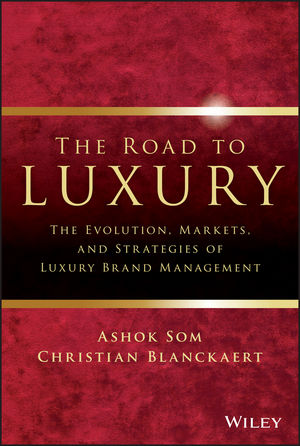By Ashok Som, Professor of Global Strategy at ESSEC Business School, luxury sector expert and Co-Director of the ESSEC-Bocconi EMiLUX program.
___
The luxury industry is a perfect paradox. On the one hand it sells itself (among other inherent attributes) on the notion of timelessness and heritage, and on the other it offers beauty that can metaphorically die in a day, only to be reborn in the constant cycle of creativity and changing fashions. In an industry context, skilful homoluxus – as those working in the luxury sector are known by – are also well aware that the lifespan of luxury brands is varied and totally surprising. Brands can flutter in all their spring time glory, only to comprehend their fragility when collapse, which comes so quickly in luxury, suddenly looms.
Although there still exist luxury brands which have lived through generations of family ownership – Estée Lauder and Hermès among them – and still others acquired since their early days by wealthy families – Chanel, for example – countless luxury butterflies have ended up in the collections of conglomerates that have built a portfolio of brands focused on specific luxury sectors within their own structures. The environment for these pretty creatures has changed too. From being the predilection for only a small elite of consumers, in recent years luxury has become accessible to a wider, younger and more international net, extending their reach by extending their product range and diversifying into larger offers such as eyewear, perfumes and accessories.
The creator behind a brand – the artist that gives all the uniqueness and beauty to a luxury product – was also in former times the controller of the brand. But the developments in the sector over the last twenty years or so have raised questions about his or her capability, indeed capacity, to run a global business, sell, and manage the value chain as well as the issue of continuing brand legacy after his or her departure.
Today, the golden rule in real luxury is to make sure creators have no managerial responsibilities and are given a free rein to pursue their art. The truth is that luxury can only work if the products are unexpected and unplanned. Creation goes beyond a system or habits and the organization of a luxury house has to allow for this. This is where the manager comes in. And in this context, a manager’s capacity to master the paradoxes and dilemmas in luxury may well have a butterfly effect not only on his/her teams and results, but also on the brand and its charismatic creator.
Manager versus leader
By definition, the role of a manager is to plan, organize, monitor and obtain results – in a nutshell, getting things done through others. Leaders are different: they are entrusted with providing vision, inspiring and setting out the future through strategies that enable goals to be reached by their managers – in short, making others want to do things and reach desired results. However, this is not to say that the modern manager in the luxury industry – let’s take the store manager as an example – must be either one or the other. On a micro level, he or she must indeed show proof of both definitions and put them into play. While carrying out research for my book The Road to Luxury, I had the opportunity to interview such a store manager and see her in action. For me, she was a perfect example of the right balance between the manager-leader approaches. She directed a ‘company of actors’ as she called her team, running a tight ship and being in the role of ‘dream maker’ for both her employees and her clients through a savvy alchemy of motivating, seducing, calmness in the face of stress, eloquence, visual presence and stature. She was part and parcel of the brand and its products, immediately identifiable as a living, moving incarnation of what the brand was all about, aware of people’s behaviors and shaping her management style as a result.
Going beyond the ephemeral as a manager in luxury
Indeed, management style is also profoundly influenced by the distinctive environment, social culture, and climate in which an organization operates. And given that the luxury industry is ridden with paradox, managing people in this industry is also a paradox. To survive and prosper in the luxury environment, luxury brands should be seeking to take on board managers who possess a combination of the following attributes and backgrounds.
- The ability to combine both the right and the left brain: The left brain uses logic, facts, and science. It is pragmatic and forms strategies. The right brain is creative, imaginative, perceptive, risk taking, and oriented toward the big picture. Managers in the luxury industry are required to understand the unique properties of the luxury experience, manage highly creative people, apply tough management disciplines, and be sensitive to the cultural nuances involved in running a global business.
- Speed versus time: Themanager has to deal with timelessness and profitability, on the one hand understanding and communicating on the brand’s story and products, and on the other catering for the speed of marketing, sales and after-sales in international markets.
- The ability to skip between countries and cultures: Though the rise in attracting local talent can be observed, in general the luxury manager has to understand French and Italian savoir faire while selling products in Shenzhen, Sao Paulo, Singapore, or San Francisco. In addition, he/she should demonstrate skill in managing the dilemma faced by the luxury brand: the seemingly contradictory strategies of developing new markets, opening up new distribution channels and adapting to diverse cultural expectations, while preserving the ‘exclusivity’ and craftsmanship of the products inherent to the ‘local’ brand.
- Outside experience, internal potential: Nurturing talent internally is a long process. Reason points to recruiting from other sectors as managers generally demonstrate a greater experience and grasp of dealing with crises and different cultures – including in times of international expansion – their international mindset being perhaps invaluable to luxury businesses needing to operate more effectively in a globalized marketplace. However, brands such as LVMH, Richemont and Kering, while open to external high-potentials, also foster an internal policy of nurturing employees who are already within the organization, or at least within the industry, and investing in their talent resources to nurture the leaders for tomorrow. One last point: managers coming into the industry from outside tend to be more effective when joining larger businesses than smaller ones. The challenge is to find leaders who possess a high level of sensitivity and who recognize the importance of preserving the inherent value of a brand.
- Embrace both the digital and the traditional: Thecompetencies required for the digital and the traditional luxury world are not the same and being ambidextrous is a key challenge. The Burberry brand provides a telling example: the firm has interwoven creativity, technology, and management in a way that has helped generate consumer interest in Burberry products via its digital projects that include a crowd-sourcing site, 3-dimensional livestreaming show and an interactive digital ad campaign. Managers should therefore demonstrate ease with working with and promoting their brand via both traditional and digital contexts.
Difference: embrace it and understand it
There is, of course, no one-size-fits-all. Different houses, brands, and conglomerates have different management styles according to the personalities of their leaders and the internal and external environment in which they operate. However, luxury is a world of details that make a difference – to stretch the butterfly metaphor further, ones that may separate the luxurious Eighty Eight from the common Cabbage-white. To be a manager in the luxury industry requires physical endurance, good mood, good health, and good listening skills in both home and international market contexts. Quite apart from the usual hard skills attributes of a manager, understanding is paramount to capturing the subtleties of the luxury game, its details, and the specific language of the luxury brand. In the end, the homoluxus should always know that Luxury has been built on the foundation of certain principles that can be neither ignored nor compromised. It is a culture and a philosophy that requires understanding before the adoption of business practices because its intricacies and output are essentially different from other types of goods. Embrace and understand it and the experience will be like working on a butterfly’s wings: beautiful, creative, heady and in constant regeneration.










